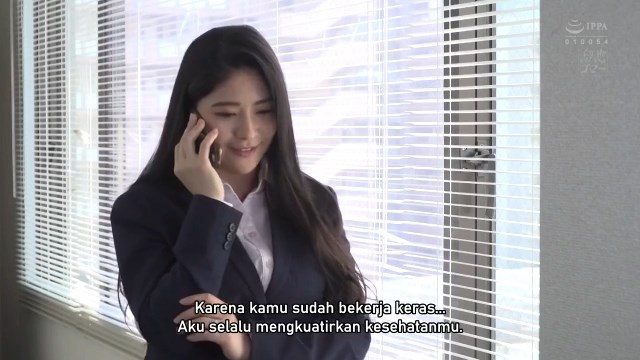
Video Trakha Machekhi
Every few hours, somewhere in the digital universe, a new Video Trakha Machekhi is born. It could be a spontaneous act of kindness, a hilarious street interview, or an unexpected twist that shocks everyone watching. Within minutes, it’s everywhere — flooding TikTok feeds, dominating Twitter threads, and even sparking debates on YouTube. But what makes the Video Trakha Machekhi so irresistible? Why do millions of people — from office workers to teenagers — stop whatever they’re doing just to watch, share, and comment on a single clip? The answer isn’t as simple as “it’s entertaining.” It’s psychological, cultural, and deeply human.
The Birth of a Video Trakha Machekhi Viral Sensation
The Video Trakha Machekhi doesn’t need a marketing budget or celebrity endorsement. All it takes is authenticity. In a world where everything feels filtered, edited, and exaggerated, people crave something real. A genuine laugh, an unplanned reaction, or a slice of everyday life can resonate more deeply than a polished advertisement. In my opinion, that’s why Indonesia has become such a fertile ground for viral content. The country’s digital community is energetic, creative, and unfiltered. A random clip recorded on a smartphone in Bandung or Surabaya can reach millions across Asia in a matter of hours. The Video Trakha Machekhi often starts local — but its emotion, humor, or humanity makes it universal. This raw authenticity connects people across backgrounds. It’s not just about watching a video; it’s about feeling something — surprise, joy, empathy — and then passing that feeling along to others.
The Psychology Behind Virality
The magic of the Video Trakha Machekhi lies in how it plays with our emotions. Humans are naturally wired to share experiences that make us feel something powerful. When we laugh, cry, or feel outrage, we instinctively want others to feel it too. Sharing becomes a social reflex — a way of saying, “This is amazing, you need to see this.” In digital culture, that reflex is amplified. Platforms like TikTok, Instagram, and X are built to reward engagement. The more emotional a video is, the more likely it is to be shared, boosting its visibility exponentially. And once something hits a critical mass, it’s unstoppable. Yet, there’s a catch. The same emotion that fuels virality can also cloud our judgment. Many viewers share before thinking — spreading misinformation or invading someone’s privacy in the process. The Video Trakha Machekhi reminds us that the internet’s greatest strength — speed — can also be its biggest flaw.
Fame and Fragility in the Viral Era
For creators, the Video Trakha Machekhi can be life-changing. One lucky upload can turn an unknown person into an overnight celebrity. We’ve seen countless examples of regular people gaining fame, brand deals, and platforms for their voices simply because their video resonated. However, fame born from virality is fragile. The same audience that lifts you up can turn against you just as quickly. Once a Video Trakha Machekhi goes public, it’s no longer under your control. It’s analyzed, remixed, and sometimes even weaponized. In my view, this dual nature of virality — the mix of opportunity and risk — is what makes the internet such a fascinating yet volatile space. It gives everyone a voice but also strips away context and privacy in the name of entertainment.
What the Viral Video Terbaru Says About Us
When you really think about it, the Video Trakha Machekhi is more than just digital noise. It’s a mirror reflecting who we are as a society. What we make viral says a lot about what we value — humor, emotion, surprise, or outrage. In Indonesia, these viral moments often highlight the warmth and creativity of everyday people. A street vendor’s kindness, a funny classroom scene, or a unique local tradition can capture the nation’s attention — and sometimes, the world’s. The Video Trakha Machekhi becomes a form of cultural storytelling, giving outsiders a glimpse of Indonesia’s humor, compassion, and authenticity. But it also challenges us to ask questions: Are we celebrating the right things? Are we using our digital voices to uplift or to exploit? Virality, after all, is a powerful tool — one that can either unite or divide.
- Berbagi Kehangatan Bersama Mandor Cantik
- Bercanda Dengan Adik
- Pijat Dulu Say Baru Masukin
- Menemani Tante Girang Kencan
- Mama Ajari Bersilat Lidah Jepang Viral 2025
Conclusion: The Meaning Behind the Momentun
The Video Trakha Machekhi is not just about clicks or views — it’s about connection. It reminds us of our shared emotions and our instinct to communicate them. But as the pace of virality accelerates, so should our awareness. In my opinion, the true value of a viral moment lies not in how many people see it, but in what it inspires afterward. Does it make us laugh a little more kindly? Think a little deeper? Act a little better? The next time a Video Trakha Machekhi fills your feed, take a moment to reflect. Behind that short clip lies a complex web of technology, emotion, and human connection — the digital heartbeat of our time.





















